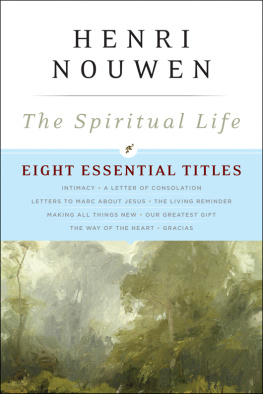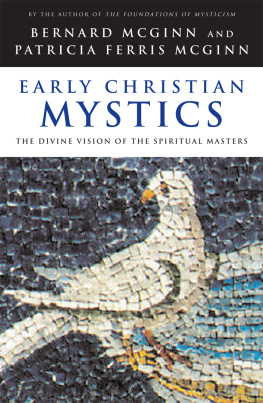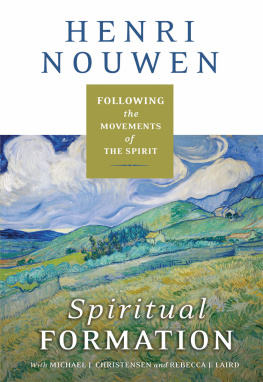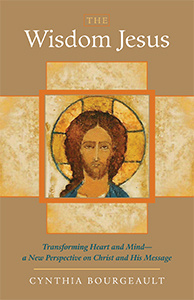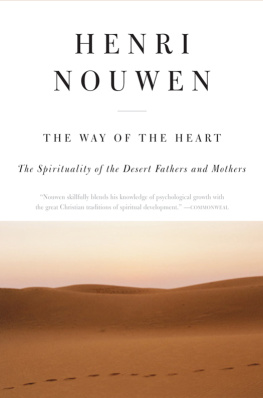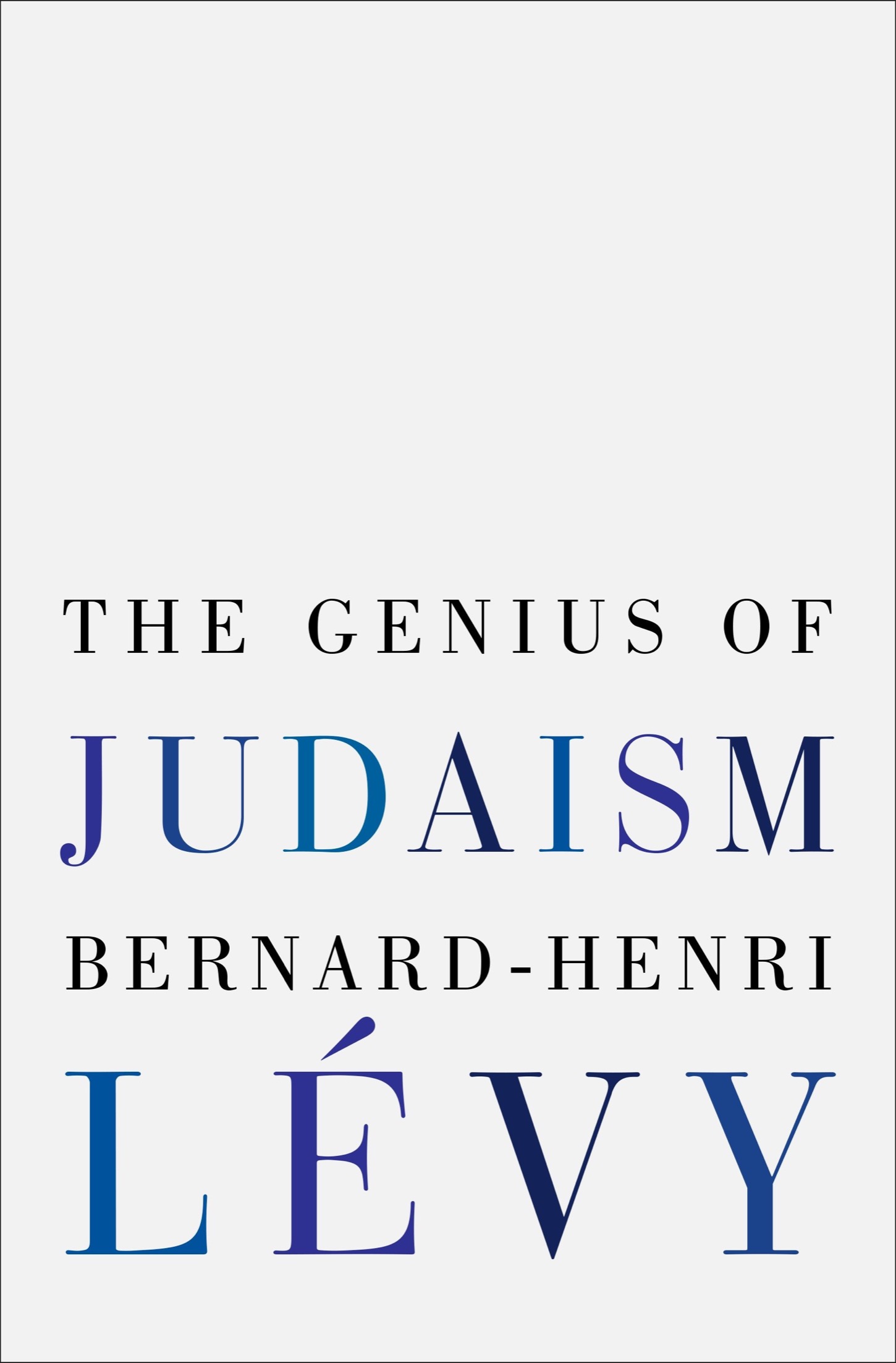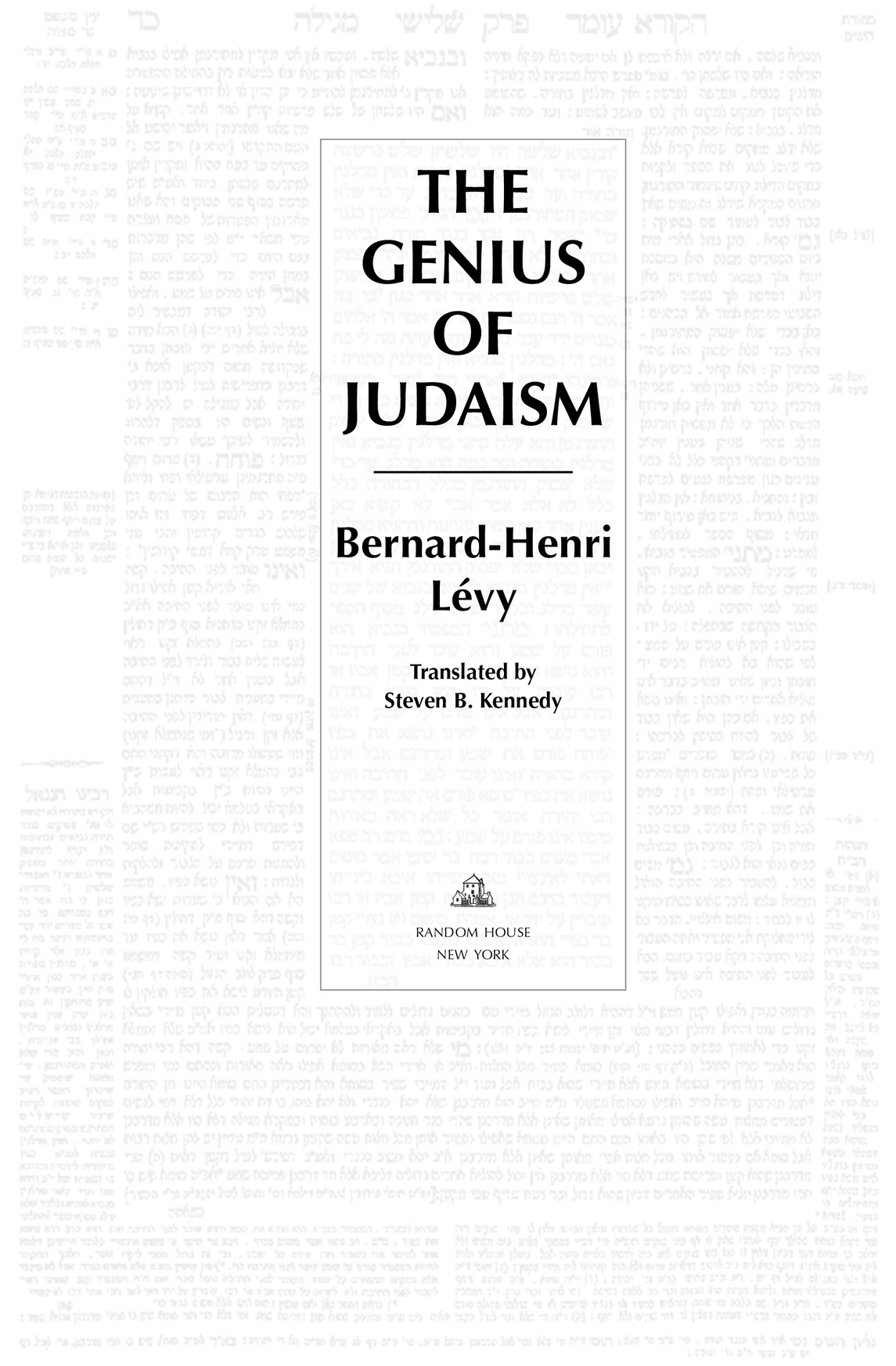Bernard-Henri Lévy - The Genius of Judaism
Here you can read online Bernard-Henri Lévy - The Genius of Judaism full text of the book (entire story) in english for free. Download pdf and epub, get meaning, cover and reviews about this ebook. year: 2017, publisher: Random House Publishing Group, genre: Politics. Description of the work, (preface) as well as reviews are available. Best literature library LitArk.com created for fans of good reading and offers a wide selection of genres:
Romance novel
Science fiction
Adventure
Detective
Science
History
Home and family
Prose
Art
Politics
Computer
Non-fiction
Religion
Business
Children
Humor
Choose a favorite category and find really read worthwhile books. Enjoy immersion in the world of imagination, feel the emotions of the characters or learn something new for yourself, make an fascinating discovery.

- Book:The Genius of Judaism
- Author:
- Publisher:Random House Publishing Group
- Genre:
- Year:2017
- Rating:4 / 5
- Favourites:Add to favourites
- Your mark:
The Genius of Judaism: summary, description and annotation
We offer to read an annotation, description, summary or preface (depends on what the author of the book "The Genius of Judaism" wrote himself). If you haven't found the necessary information about the book — write in the comments, we will try to find it.
A smart, revealing, and essential book for our times.The Washington Post
For more than four decades, Bernard-Henri Lvy has been a singular figure on the world stageone of the great moral voices of our time. Now Europes foremost philosopher and activist confronts his spiritual roots and the religion that has always inspired and shaped himbut that he has never fully reckoned with.
The Genius of Judaism is a breathtaking new vision and understanding of what it means to be a Jew, a vision quite different from the one were used to. It is rooted in the Talmudic traditions of argument and conflict, rather than biblical commandments, borne out in struggle and study, not in blind observance. At the very heart of the matter is an obligation to the other, to the dispossessed, and to the forgotten, an obligation that, as Lvy vividly recounts, he has sought to embody over decades of championing lost causes, from Bosnia to Africas forgotten wars, from Libya to the Kurdish Peshmergas desperate fight against the Islamic State, a battle raging as we speak. Lvy offers a fresh, surprising critique of a new and stealthy form of anti-Semitism on the rise as well as a provocative defense of Israel from the left. He reveals the overlooked Jewish roots of Western democratic ideals and confronts the current Islamist threat while intellectually dismantling it. Jews are not a chosen people, Lvy explains, but a treasure whose spirit must continue to inform moral thinking and courage today.
Lvys most passionate book, and in many ways his most personal, The Genius of Judaism is a great, profound, and hypnotic intellectual reckoningindeed a call to armsby one of the keenest and most insightful writers in the world.
Praise for The Genius of Judaism
In The Genius of Judaism, Lvy elaborates on his credo by rebutting the pernicious and false logic behind current anti-Semitism and defends Israel as the worlds most successful multi-ethnic democracy created from scratch. Lvy also makes the case for Frances Jews being integral to the establishment of the French nation, the French language, and French literature. And last, but certainly not least, he presents a striking interpretation of the Book of Jonah. . . . A tour de force.Forbes
Ardent . . . Lvys message is essentially uplifting: that the brilliant scholars of Judaism, the authors of the Talmud, provide elucidation into the great questions that have stirred humanity since the dawn of time. . . . A philosophical celebration of Judaism.Kirkus Reviews
Lvy (Left in Dark Times), a prominent French journalist and politically engaged philosopher, turns his observations inward here, pondering the teachings of Judaism and the role they have played in contemporary European history as well as in his own life and intellectual inquiry. . . . [Lvys] musings on the meaning of the story of Jonah and the relevance of symbolic Ninevahs in our time are both original and poetic. . . . A welcome addition to his oeuvre.Publishers Weekly
Bernard-Henri Lévy: author's other books
Who wrote The Genius of Judaism? Find out the surname, the name of the author of the book and a list of all author's works by series.


